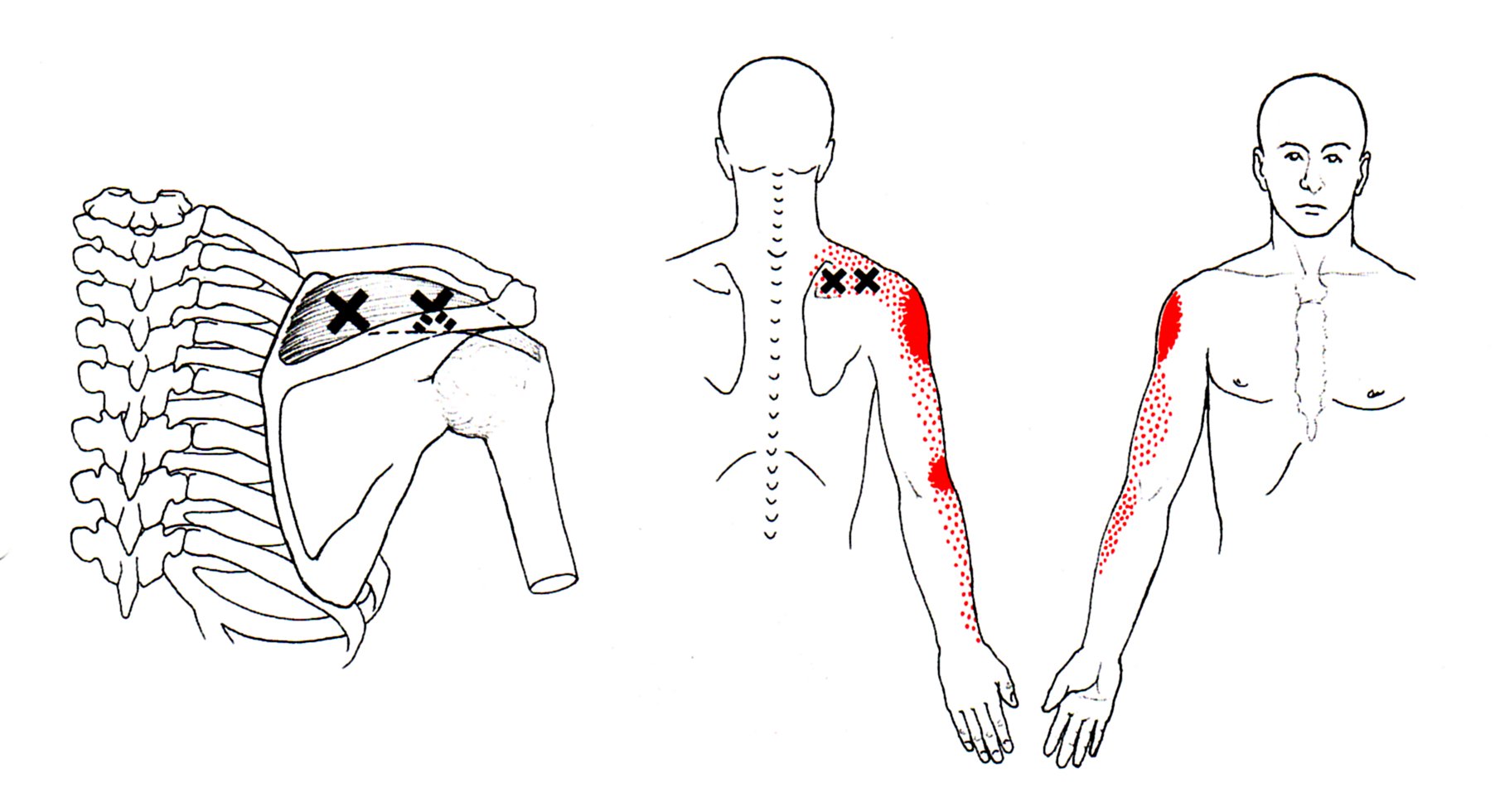 The Rotator Cuff Muscle – Supraspinatus
The Rotator Cuff Muscle – Supraspinatus
The “Rotator Cuff” gets its name as a result of the common tendinous attachment of all of the rotator cuff muscles and the way that the attachment sits over the head of the humerus. This common tendinous attachment drapes over the top of the humerus and resembles a shirt cuff enough that someone decided to called it the rotator “cuff”!
The rotator cuff muscles are sometimes referred to as the SITS muscles. Each letter stands for one of the muscles in the group.
They are:
- Supraspinatus
- Infraspinatus
- Teres Minor
- Subscapularis
I often refer to the rotator cuff muscles as dynamic stabilizers since they both stabilize and control the movement of the head of the humerus.
What does supraspinatus mean?
- Supra is similar to the word superior and means above.
- Spinatus refers to the spine of the scapula – that’s the ridge that is almost horizontal.
 Where does the supraspinatus muscle attach?
Where does the supraspinatus muscle attach?
- On the scapular end, the supraspinatus muscle attaches to a depression (fossa) on the top of the scapula that is technically called the supraspinous fossa.
- On the other end it attaches onto the very top of the head of the humerus.
What actions does the supraspinatus muscle do?
- In terms of movement – Only one action – abduction of the humerus (first 10 degrees)
- Stabilize the head of the humerus in the socket
What are the common injuries to the supraspinatus muscle?
Rotator Cuff Tear
The most common injury associated with the rotator cuff muscles are muscle tears. This is especially true of the supraspinatus muscle which is the most commonly torn rotator cuff muscle.
When a tear occurs, the person typically has difficulty abducting their arm and often leans to the side in order to make it seem like their arm is abducting.
Symptoms can include generalized shoulder pain. It’s not uncommon for someone with a rotator cuff tear to be woken at night by the pain.
Frozen Shoulder
This is going to be the subject of the next injury article. For the moment it’s sufficient to say that all of the rotator cuff muscles can be involved in cases of frozen shoulder. More to come on this soon.
People who get this condition often wake up one morning and have extremely limited range of motion. Sometimes the cause is completely unknown (idiopathic), sometimes it stems from rotator cuff tears, and sometimes it arises just from an acute strain of the shoulder.
Postures Where The Supraspinatus Contracts

Any time the arms abduct the supraspinatus would contract to initiate that movement. Image Source: Breakingmuscle.com
Postures Where The Supraspinauts lengthens

It is hard to find examples of adduction that would stretch the supraspinatus. Vatayanasana with the elbows a little lower would start to get at it. Image Source: Piercedoerr.com
Trigger Points

Trigger Points can create significant pain patterns.
Комментариев нет:
Отправить комментарий